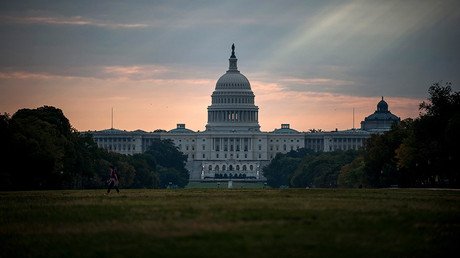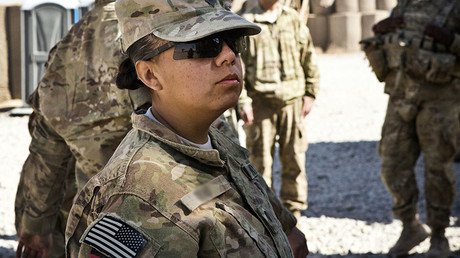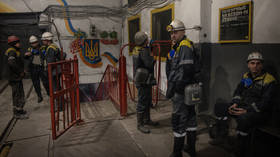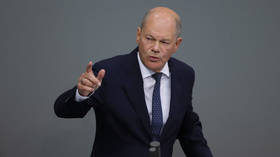Senate approves defense bill allowing draft of women

A provision in the far-reaching defense appropriations bill just passed by the US Senate would require female Americans to register for the military draft, just like the men.
On Tuesday, the Senate approved the National Defense Authorization Act (NDAA) for the fiscal year 2017. The yearly military budget bill passed by a vote of 85-13.
Some Republicans voted against the bill, however, because it included a requirement for women to register with the Selective Service System.
Senator Ted Cruz (R-Texas) voted against the bill due to that provision, even though several amendments that he sponsored were included in the legislation, saying that he could not “in good conscience vote to draft our daughters into the military.”
“It is a radical change that is attempting to be foisted on the American people,” Cruz said. “The idea that we should forcibly conscript young girls into combat, to my mind, makes little or no sense. It is at a minimum a radical proposition. I could not vote for a bill that did so, particularly that did so without public debate.”
Senator Mike Lee (R-Utah) introduced an amendment last month that was cosponsored by Cruz that would have removed the female draft provision.
“Forcing women to register for the draft would be a sea change not only for our Armed Services but culturally as well,” Lee said in a statement. “I simply have not seen enough research from the Department of Defense on why this is needed or how it would work.”
The bill, however, passed the Senate with broad bipartisan support, with Republicans voting 48-6 in favor and Democrats voting 37-7.
Current US law only requires men between the ages of 18 and 26 to register for Selective Service. If the NDAA passes the House and the president’s desk, women who turn 18 in 2018 or later will be required to do this as well.
The Supreme Court ruled in 1981 that women did not have to register for the draft because they had different roles in the military than men, such as being exempt from front-line combat. However, Secretary of Defense Ashton Carton in December announced that the US military would open all combat roles to women.
“The fact is, every single leader in this country, both men and women, members of the military leadership, believe that it’s fair since we opened up all aspects of the military to women that they would also be registering for Selective Services,” said Senator John McCain (R-Arizona), the chairman of the Armed Services Committee.
In February, the top leadership of US military testified at a Senate Armed Services Committee hearing about how to implement the Obama administration’s decision to open all roles in the military to women.
“Every American who's physically qualified should register for the draft,” General Robert Neller, commandant of the US Marine Corps, told the committee at the time.
“I think that all eligible and qualified men and women should register for the draft,” added General Mark Milley, Army Chief of Staff.
The House’s version of the NDAA differs from the Senate’s on the issue of women and the draft, having dropped the provision in an earlier procedural vote. The House passed its preferred iteration of the spending bill in May.
President Obama has threatened to veto the House bill over the obstacles it creates to shut down the Guantanamo Bay detainment camp, and criticized the “hollow force structure” it creates by boosting Army troop levels “without the money to sustain it.”















